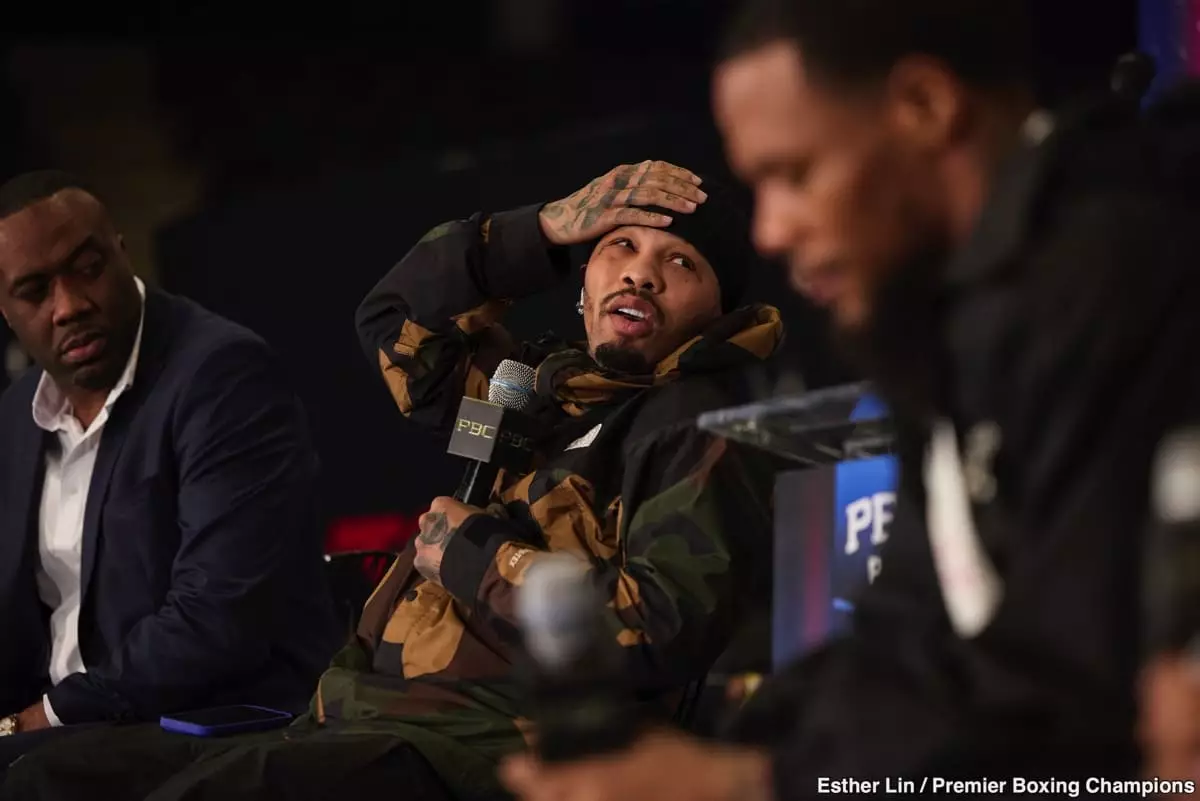The recent Ring Magazine Award show in London showcased a glittering assembly of boxing’s elite, yet one prominent figure was notably absent. Gervonta “Tank” Davis, an unbeaten star and the reigning WBA lightweight champion, expressed his discontent towards the event and its organizers, sparking a dialogue that goes beyond personal grievances. The allegations of “selling out” to foreign promoters and the circumstances surrounding Davis’s absence provide a lens through which to view the evolving landscape of boxing today.
Observers of the boxing community were keenly aware of the impact of Tank’s absence from the award show. His refusal to participate serves as a stark commentary on his feelings towards the current state of boxing and the new ownership of Ring Magazine by Turki Alalshikh. Davis took to social media to voice his frustrations, questioning why many fighters were invited while others like him were overlooked. The tone of his messages indicates a deeper resentment not just towards Alalshikh, but also against the current trend in boxing where lucrative opportunities seem to favor a select few willing to abandon traditional venues for payouts in less familiar territories.
Davis’s grievances are not simply personal; they resonate with a broader narrative regarding the commercialization of boxing and the allure of international markets, particularly in Saudi Arabia. He decried the fighters who choose to travel there, labeling them as “d*** eaters” who cater to the whims of wealthy promoters rather than fighting for the sake of the sport. This sentiment articulates a growing divide in boxing: should fighters prioritize financial stability or uphold the traditions and integrity of the sport?
The Financial Reality of Boxing
Those who criticize boxers for seeking financial gain often overlook the harsh realities of a professional athlete’s career. Boxing is an ephemeral endeavor, with most fighters experiencing a limited window in which they can perform at their peak. For many, the chance to secure life-altering paydays cannot be ignored. As Davis himself is aware, the financial incentives present in Saudi Arabia have attracted some of the biggest names in boxing, drawing them away from events held in the U.S. This migration has economic implications: venues, sponsors, and local economies can suffer while some fighters enjoy financial success abroad.
Yet, the underlying concern remains: is this shift dissolving the heritage of boxing? Davis’s disdain seems to stem from the belief that the sport is drifting away from its roots, replaced by commercial interests and a focus on profit at the expense of integrity. The disparity in regional support, where American audiences may grow increasingly alienated from large-scale events, has prompted concern among fighters and fans alike.
The controversy surrounding Davis raises the question of whether his criticisms stem from genuine concern for the sport or from a tinge of jealousy. The visibility of fights in lucrative markets may overshadow his own career progression and opportunities for high-profile matches. Interestingly, Turki Alalshikh has expressed a keen interest in working with Davis, particularly in matching him against Shakur Stevenson, another rising star who seems unfazed by the changes in the promotion landscape. This juxtaposition prompts speculation on whether Davis is feeling left behind in his own career, watching others grab the spotlight while he grapples with the implications of an evolving industry.
In a sport that has often pitted traditionalists against innovators, the friction between Davis and the emerging breed of boxing promotion reflects a broader cultural shift. Fighters must consider the implications of their choices: should they follow their financial interests into uncharted territories, or should they defend the essence of the sport they love?
A Future of Possibilities
As the boxing world continues to transition and adapt to new realities, the conversations sparked by Davis’s remarks provide valuable insights. The conflict between financial motivation and the spirit of competition will certainly influence future decisions made by fighters, promoters, and fans alike. Navigating the landscape of modern boxing will require open dialogue, and the ability to forge a path that honors both the heritage of the sport and the financial pressures that drive it forward. Only time will reveal how this tension shapes the future of boxing and whether figures like Tank Davis will reconcile with the changing tides.

